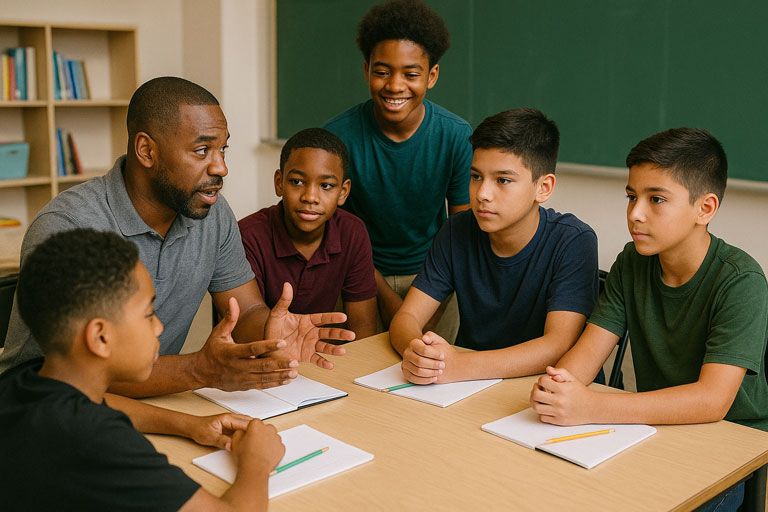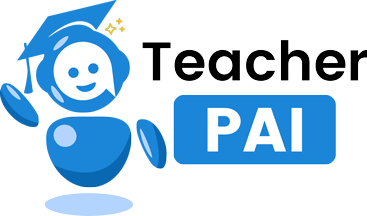"Strength. Leadership. Legacy."
The Brotherhood Program is a male-focused support and rites of passage initiative under the Community Change Pedagogy. It engages boys and young men in exploring topics relevant to fatherhood, mentorship, male identity, leadership, and community responsibility. Through interest-based, project-based learning, the program integrates academics with personal development, preparing participants to thrive in school, lead in their communities, and build positive legacies for future generations. Lessons are designed to strengthen both academic skills and life competencies while fostering a strong sense of identity, responsibility, and purpose.
Goals
- Develop leadership, communication, and decision-making skills among boys and young men.
- Promote positive male identity, self-awareness, and community engagement.
- Equip participants with strategies for academic success and responsible life choices.
- Foster intergenerational learning and mentorship opportunities.
Skill Objectives
Participants will improve the following skills:
- Problem-solving skills – the ability to navigate challenges male youth and adults face in school, work, and personal relationships by analyzing options and applying effective strategies
- Research skills – the ability to investigate opportunities and resources that support the academic, career, and personal growth of male youth and adults
- Management skills – the ability to organize time, tasks, and responsibilities in ways that help male youth and adults reach their goals and strengthen leadership in their communities
Outcomes
- Increased academic engagement and improved performance in core subjects.
- Stronger leadership skills and ability to work collaboratively with peers and mentors.
- Greater self-confidence and clarity in personal and academic goals.
- Enhanced sense of responsibility and connection to community.
Benefits
Research on male-focused programming shows that such initiatives:
- Improve academic and behavioral outcomes through structured mentoring and goal-setting for boys (Thompson et al., 2001; Raposa et al., 2019).
- Increase prosocial behaviors and reduce violence via coach-led, male-only programming (Miller et al., 2012; Miller et al., 2013; Miller et al., 2020).
- Strengthen identity, health knowledge, and positive norms for adolescent boys through mentoring frameworks that address male gender norms (Plourde et al., 2020).
References
- Miller, E., Tancredi, D. J., McCauley, H. L., Decker, M. R., Virata, M. C. D., Anderson, H. A., O’Connor, B., & Silverman, J. G. (2012). “Coaching Boys Into Men”: A cluster-randomized controlled trial of a dating violence prevention program. Journal of Adolescent Health, 51(5), 431–438. https://www.jahonline.org/
article/S1054-139X(12)00052-3/ fulltext - Miller, E., Tancredi, D. J., McCauley, H. L., Decker, M. R., Virata, M. C. D., O’Connor, B., & Silverman, J. G. (2013). One-year follow-up of a coach-delivered dating violence prevention program: A cluster randomized controlled trial. American Journal of Preventive Medicine, 45(1), 108–112. https://pubmed.ncbi.nlm.nih.
gov/23790995/ - Miller, E., Jones, K. A., Ripper, L., Paglisotti, T., Mulbah, P., & Abebe, K. Z. (2020). An athletic coach–delivered middle school gender violence prevention program: A cluster randomized clinical trial. JAMA Pediatrics, 174(3), 241–249. https://jamanetwork.com/
journals/jamapediatrics/ fullarticle/2758662 - Plourde, K. F., Fischer, S., Cunningham, J., Brady, K., McCarraher, D. R., & Agarwal, P. (2020). Boys mentoring, gender norms, and reproductive health: A review. Journal of Adolescent Health, 66(4), 437–449. https://www.jahonline.org/
article/S1054-139X(20)30325-6/ fulltext - Raposa, E. B., Rhodes, J., Stams, G. J. J. M., Card, N., Burton, S., Schwartz, S., Yoviene, S., & Hussain, S. (2019). The effects of youth mentoring programs: A meta-analysis of outcome studies. Journal of Youth and Adolescence, 48(3), 423–443. https://www.rhodeslab.org/wp-
content/uploads/2019/01/ Raposa2019_Article_ TheEffectsOfYouthMentoringProg .pdf - Thompson, L. A., Greer, J., & Greer, B. (2001). The impact of mentoring on academic achievement of at-risk youth. Children and Youth Services Review, 23(3), 227–242. https://doi.org/10.1016/S0190-
7409(01)00134-7





